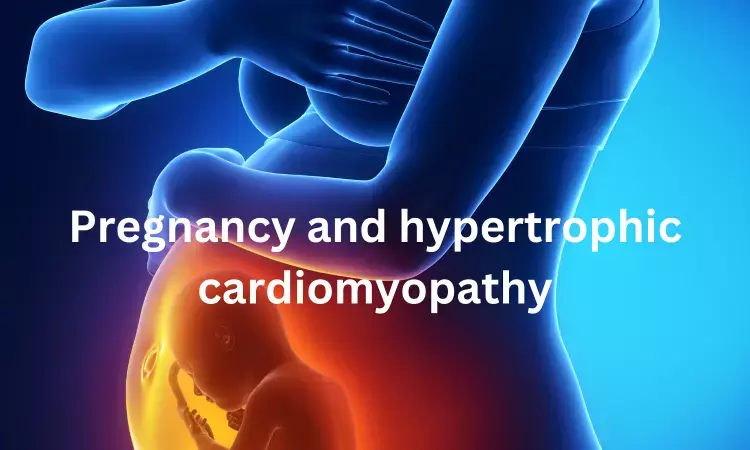- Home
- Medical news & Guidelines
- Anesthesiology
- Cardiology and CTVS
- Critical Care
- Dentistry
- Dermatology
- Diabetes and Endocrinology
- ENT
- Gastroenterology
- Medicine
- Nephrology
- Neurology
- Obstretics-Gynaecology
- Oncology
- Ophthalmology
- Orthopaedics
- Pediatrics-Neonatology
- Psychiatry
- Pulmonology
- Radiology
- Surgery
- Urology
- Laboratory Medicine
- Diet
- Nursing
- Paramedical
- Physiotherapy
- Health news
- Fact Check
- Bone Health Fact Check
- Brain Health Fact Check
- Cancer Related Fact Check
- Child Care Fact Check
- Dental and oral health fact check
- Diabetes and metabolic health fact check
- Diet and Nutrition Fact Check
- Eye and ENT Care Fact Check
- Fitness fact check
- Gut health fact check
- Heart health fact check
- Kidney health fact check
- Medical education fact check
- Men's health fact check
- Respiratory fact check
- Skin and hair care fact check
- Vaccine and Immunization fact check
- Women's health fact check
- AYUSH
- State News
- Andaman and Nicobar Islands
- Andhra Pradesh
- Arunachal Pradesh
- Assam
- Bihar
- Chandigarh
- Chattisgarh
- Dadra and Nagar Haveli
- Daman and Diu
- Delhi
- Goa
- Gujarat
- Haryana
- Himachal Pradesh
- Jammu & Kashmir
- Jharkhand
- Karnataka
- Kerala
- Ladakh
- Lakshadweep
- Madhya Pradesh
- Maharashtra
- Manipur
- Meghalaya
- Mizoram
- Nagaland
- Odisha
- Puducherry
- Punjab
- Rajasthan
- Sikkim
- Tamil Nadu
- Telangana
- Tripura
- Uttar Pradesh
- Uttrakhand
- West Bengal
- Medical Education
- Industry
Pregnancy may not have long term adverse outcomes in women with hypertrophic cardiomyopathy

Hypertrophic cardiomyopathy (HCM) is a common condition affecting the left ventricle, the main pumping chamber of the heart. The walls of the left ventricle become thick and stiff. HCM is usually caused by an inherited genetic variant (familial hypertrophic cardiomyopathy).
Whether pregnancy is a modifier of the long-term course and outcome of women with hypertrophic cardiomyopathy (HCM) is unknown. Researchers in a recent study assessed the association of pregnancy with long-term outcomes in HCM women.
The study suggests that pregnancy should not be discouraged, as most patients tolerate pregnancy well and do not show a survival disadvantage compared to women without except in the presence of severe Heart Failure (HF) symptoms or high-risk features. Pregnancy is not a risk of long-term outcome in women with HCM, and mostly occurs before a cardiac diagnosis. The findings of the study are published in European Journal of Preventive Cardiology.
Researchers conducted a retrospective evaluation of women with HCM from 1970 to 2021. Only women with pregnancy-related information (pregnancy present or absent) and a follow-up period lasting ≥1 year were included. The peripartum period was defined as -1 to 6 months after delivery. The primary endpoint was a composite for major adverse cardiovascular events (MACE: cardiovascular death, sudden cardiac death, appropriate defibrillator shock and heart failure [HF] progression).
The key findings of the study are
• Out of 379 (58%) women were included. There were 432 pregnancies in 242 (63%) patients. In 29 (7.6%) cases, pregnancies (n=39) occurred after HCM diagnosis.
• Among these, three carrying likely pathogenic sarcomeric variants suffered MACEs in the peripartum period.
• At 10±9 years follow-up, age at diagnosis (hazard Ratio [HR]: 1.034, 95% confidence interval [C.I.]: 1.018-1.050, p<0.001) and NYHA Class (II vs I: HR 1.944, 95% C.I. 0.896-4.218; III vs I: HR 5.291, 95% C.I. 2.392-11.705, p<0.001) were associated with MACE.
• Conversely, pregnancy was associated with reduced risk (HR 0.605; 95% C.I. 0.380-0.963, p=0.034). Among women with pregnancy, multiple occurrences did not modify risk.
Researchers concluded that “Pregnancy is not a modifier of long-term outcome in women with HCM, and mostly occurs before a cardiac diagnosis. Most patients tolerate pregnancy well and do not show a survival disadvantage compared to women without. Pregnancy should not be discouraged, except in the presence of severe HF symptoms or high-risk features.”
Reference: Carlo Fumagalli and others, Impact of Pregnancy on the Natural History of Women with Hypertrophic Cardiomyopathy, European Journal of Preventive Cardiology, 2023;, zwad257, https://doi.org/10.1093/eurjpc/zwad257
MSc. Neuroscience
Niveditha Subramani a MSc. Neuroscience (Faculty of Medicine) graduate from University of Madras, Chennai. Ambitious in Neuro research having worked in motor diseases and neuron apoptosis is interested in more of new upcoming research and their advancement in field of medicine. She has an engrossed skill towards writing and her roles at Medical dialogue include Sr. Content writer. Her news covers new discoveries and updates in field of medicine. She can be reached at editorial@medicaldialogues.in
Dr Kamal Kant Kohli-MBBS, DTCD- a chest specialist with more than 30 years of practice and a flair for writing clinical articles, Dr Kamal Kant Kohli joined Medical Dialogues as a Chief Editor of Medical News. Besides writing articles, as an editor, he proofreads and verifies all the medical content published on Medical Dialogues including those coming from journals, studies,medical conferences,guidelines etc. Email: drkohli@medicaldialogues.in. Contact no. 011-43720751


